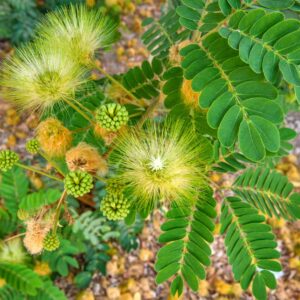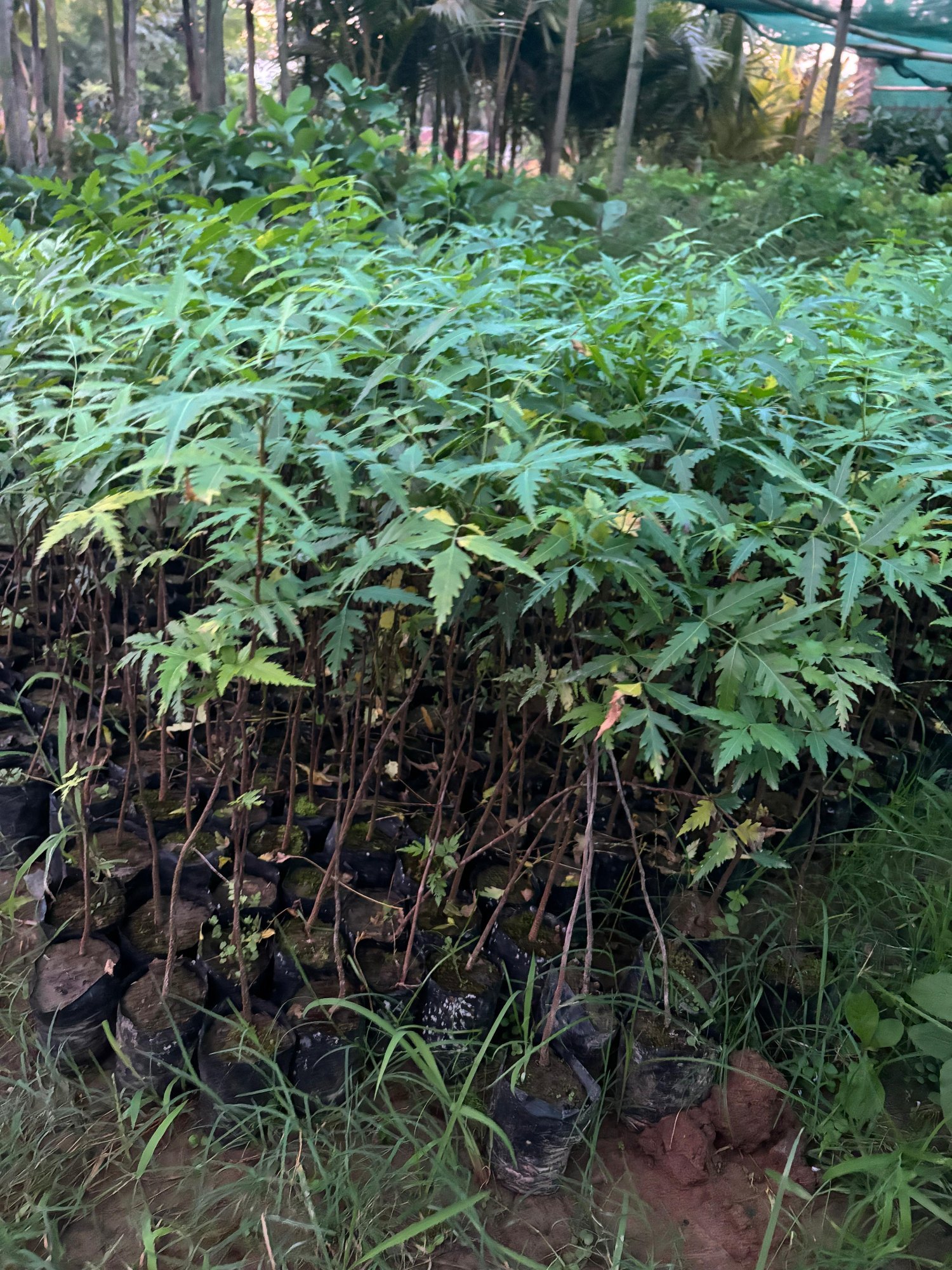Moha-Nim (Melia azadirachta)
Original price was: ₹40.00.₹20.00Current price is: ₹20.00.
OVERVIEW
Moha-Nim (Melia azadirachta)
Plant Guide
Local Indian Name: Moha-Nim)
Scientific Name: Melia azadirachta L.
Family: Meliaceae (Mahogany Family)
Category: Deciduous Tree
Subcategory: Ornamental and Medicinal Plant
Native Region:
-
Origin: Native to South Asia, particularly the Indian subcontinent.
-
Distribution: Widely found in India, Pakistan, Bangladesh, and parts of Southeast Asia.
Introduction:
Melia azadirachta, commonly known as Moha-Nim, is a deciduous tree renowned for its medicinal properties and ornamental value. It is often confused with the Neem tree (Azadirachta indica) due to similarities in appearance and traditional uses. However, Moha-Nim is distinct in its botanical characteristics and applications.
Importance & Benefits:
-
Medicinal Uses: Traditionally used in Ayurvedic medicine for its antibacterial, antifungal, and anti-inflammatory properties. Extracts from various parts of the tree are utilized to treat ailments such as skin infections, digestive disorders, and respiratory issues.
-
Ornamental Value: With its fragrant white flowers and lush foliage, Moha-Nim is often planted for aesthetic purposes in gardens and along avenues.
-
Environmental Benefits: Acts as a natural air purifier, absorbing pollutants and releasing oxygen, thereby improving air quality.
Description and Cultivation:
-
Height: Typically grows up to 20 meters in height.
-
Trunk & Bark: Features a straight trunk with dark gray, rough, and fissured bark.
-
Leaves: The pinnate leaves are arranged alternately, comprising numerous sickle-shaped leaflets that give a feathery appearance.
-
Flowers: Produces small, fragrant white flowers arranged in large clusters, blooming primarily in the spring season.
-
Fruits: Bears smooth, green drupes that turn yellow upon ripening, each containing a hard seed.
Varieties and Cultivars:
-
Standard Moha-Nim: The primary species cultivated for its medicinal and ornamental properties.
Location and Light:
-
Climate: Thrives in tropical and subtropical climates with distinct dry and wet seasons.
-
Sunlight: Prefers full sunlight but can tolerate partial shade.
Soil Preparation:
-
Type: Grows well in well-drained sandy loam soils but is adaptable to various soil types, including clay and lateritic soils.
-
pH Range: Tolerates a pH range of 5.5 to 7.5.
-
Soil Enrichment: Incorporate organic compost or well-decomposed manure to enhance soil fertility and structure.
Planting:
-
Best Planting Season: Monsoon season (June to August) is ideal for planting to ensure adequate moisture for establishment.
-
Spacing: Maintain a spacing of 6 to 8 meters between trees to allow for proper canopy development and air circulation.
-
Pit Size: Dig pits measuring 60 cm x 60 cm x 60 cm and fill with a mixture of topsoil and organic matter before planting.
Watering:
-
Young Plants: Require regular watering during the first 1-2 years to establish a strong root system.
-
Mature Trees: Once established, Moha-Nim is drought-tolerant and requires minimal watering, relying primarily on rainfall.
Pruning:
-
Purpose: Pruning helps in maintaining tree shape, removing dead or diseased branches, and promoting healthy growth.
-
Timing: Conduct pruning during the dormant season or immediately after the flowering period.
-
Method: Use clean, sharp tools to make precise cuts, ensuring not to damage the main trunk or healthy branches.
Pest and Disease Management:
-
Common Pests: While relatively resistant, occasional infestations by scale insects or leaf-eating caterpillars may occur.
-
Common Diseases: May be susceptible to leaf spot diseases or root rot in poorly drained soils.
-
Management Practices:
-
Cultural Controls: Ensure proper spacing and air circulation to reduce humidity around the foliage.
-
Organic Methods: Application of neem oil or bio-pesticides can help manage minor pest issues.
-
Chemical Controls: In severe cases, use appropriate fungicides or insecticides as per agricultural guidelines.
-
Environmental Conditions:
-
Temperature Range: Optimal growth occurs between 20°C to 35°C.
-
Rainfall: Prefers regions with annual rainfall between 800 to 1500 mm but can tolerate lower rainfall due to its drought-resistant nature.
-
Humidity: Adaptable to both humid and semi-arid conditions.
Propagation:
-
Seeds: The most common method; seeds should be sown fresh for higher
RELATED PRODUCTS
REVIEWS

 Bagan Shirish (Albizia Procera)
Bagan Shirish (Albizia Procera) 


Reviews
There are no reviews yet.